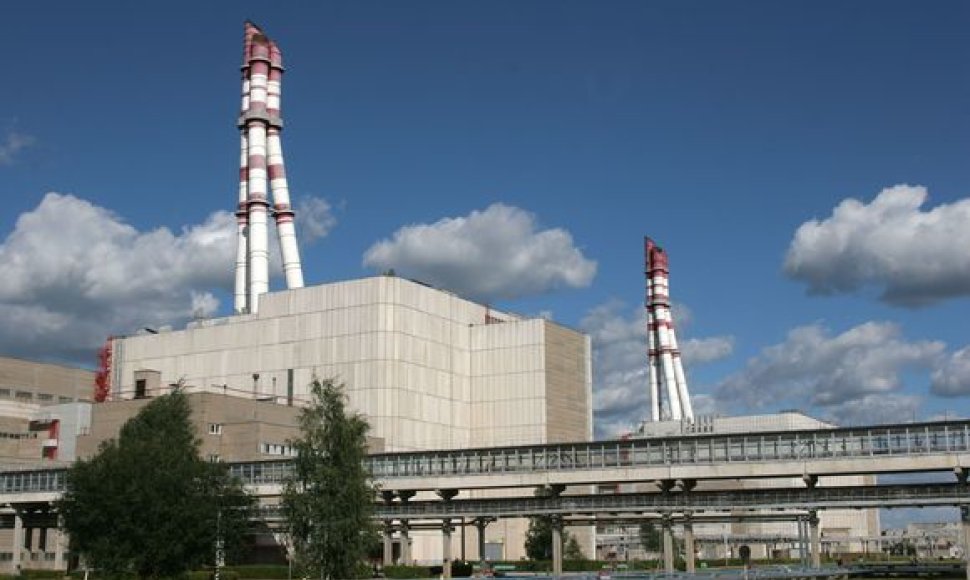"I cannot give an unambiguous answer to this question as there are paragraphs (within the report) that will directly help in discussions with the European Commission and other member states as well, but there's also some criticism. All participating member states and institutions came under criticism that the process might have been more effective and funds might have been used in a more effective way. But right know we can use some paragraphs in our discussions, and we'll have to accept some of the criticism and then see whether it will have any influence on final results," Tankevi2ius, who is holding negotiations with the European Commission on increasing funding for the decommissioning of Ignalina nuclear power plant for 2014-2020, told BNS on Wednesday.
In his words, the European Court of Auditors does not offer recommendation on whether to suspend or increase funding for decommissioning of nuclear power plants in Europe. "In their report, they bring more clarity into the whole process and suggest changing some EU funding rules. So quite a number of discussions might be held on that."
The latest cost estimate for closing Ignalina nuclear power plant rose to 2.93 billion euro.
Tankevičius adds that facts on the decommissioning of the Ignalina nuclear power plant revealed in the report have not been classified so far.
"We can only welcome the fact that effectiveness of the use of the European Union funds is being monitored. This was the first time in over 10 years when these decommissioning processes have been subjected to an in-depth analysis by the Court of Auditors. The Court of Auditors concludes that there's a huge shortage of funds, and without the deficient amount the decommissioning process could not continue properly. We totally agree with that," Tankevičius said.
After audits in Lithuania, Bulgaria, and Slovakia, the countries that committed themselves to decommissioning their national nuclear utilities upon accession to the European Union, the experts commented: "Before further spending takes place, the Commission should analyze the resources available and the expected benefits."
The European Commission (EC) also said it was not to comment on the lack of funding.
"However, after more than 10 years of EU assistance, progress has been slow, as many projects still involve preparatory activities," reads the report.
The auditors said that Slovakia was the only one of the three countries to work out a special financing mechanism, an electricity transfer fee, which will help generate part of the lacking funds, while Lithuania and Bulgaria do not have any mechanism to that effect.
"The absence of sufficient funding arrangements puts the completion of the decommissioning processes at risk," the European Court of Auditors said.
According to the report presented in Brussels, the major infrastructure projects met "significant delays" in respect to initial contracts completion dates. Based on the information the European Court of Auditors has, the interim spent fuel facility project was delayed by more than 32 months; solid waste retrieval facility — 44 months; solid waste treatment and storage facility for the management of short- and long-lived low and intermediate level radioactive waste — 34 months. The total project cost of the interim spent fuel facility increased by 22 million euro (15.6 %), the report said.
The latest cost estimate for closing Ignalina nuclear power plant rose to 2.93 billion euro, significantly more compared to initial estimates for the decommissioning (2.02 billion euro). The estimates in Slovakia and Bulgaria rose significantly less. According to the European Court of Auditors, the funding shortage in Lithuanian amounts to 1.48 billion euro.
Submitting recommendations on the situation in all three countries, the European Court of Auditors proposed that the European Commission "should establish a detailed needs assessment showing the progress of the programs so far, the activities still to be performed and an overall financing plan identifying the funding sources from the different stakeholders."
1.37 billion euro had been allocated for the decommissioning of Ignalina nuclear power plant by 2013. In the EU's new financial perspective, the European Commission suggests allocating another 210 million euro and suspending funding in 2017. The Lithuanian government has called the proposal unacceptable, while diplomats are holding negotiations on the possibility of abolishing the final funding deadline.
Lithuanian officials recognize the fact that they come under criticism from the European Union over delays related to the decommissioning of Ignalina plant. Last year, the European Parliament called for stricter control of funds allocated for the decommissioning.
In reply to the conclusions by the European Court of Auditors, the European Commission said the European Union had fulfilled its commitments, and the final responsibility lied with the member state.
"The ultimate responsibility for decommissioning and its financing lies with the Member State in which the nuclear power plant is situated. It is not for the EU to make up any funding shortfall," the European Commission report said.
The Commission added that financial issues would be further discussed but stressed that "the EU has met its financial commitments."












